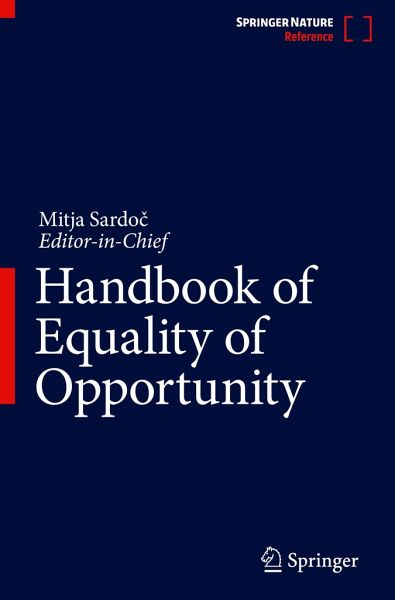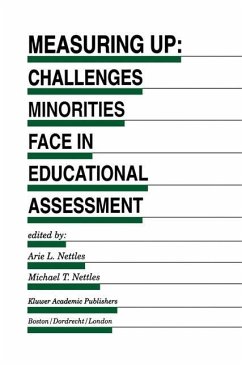
Handbook of Equality of Opportunity
Versandkostenfrei!
Versandfertig in 1-2 Wochen
382,99 €
inkl. MwSt.

PAYBACK Punkte
191 °P sammeln!
This Handbook provides an authoritative exposition of equality of opportunity. It presents the different concepts most commonly associated with equality of opportunity, and discusses the many problems dominating the controversies on equality of opportunity at the theoretical, policy or practical level. The chapters give a concise exposition of the different conceptions and basic concepts of equal opportunities. They clarify variables that are part of the 'algorithm of equal opportunities', e.g. opportunity, equality, non-discrimination, fairness, responsibility, chance and choice, excellence, ...
This Handbook provides an authoritative exposition of equality of opportunity. It presents the different concepts most commonly associated with equality of opportunity, and discusses the many problems dominating the controversies on equality of opportunity at the theoretical, policy or practical level. The chapters give a concise exposition of the different conceptions and basic concepts of equal opportunities. They clarify variables that are part of the 'algorithm of equal opportunities', e.g. opportunity, equality, non-discrimination, fairness, responsibility, chance and choice, excellence, qualifications, effort, talent, merit, desert, inequality, and risk.
The idea of equality of opportunity has traditionally been associated with a set of largely unquestioned ideals, and over the last 50 years, it has been at the very centre of the major progressive social changes and firmly entrenched in political rhetoric. Yet, the idea of equality of opportunity is far from unquestionable or unproblematic as the only solid assumption different conceptions have in common is their rejection of fixed social relations but not hierarchy itself. Disagreements over the fundamental principles, criticism over the inefficiency of policies aiming to ensure equal opportunities, and objections to their unfairness, all pose questions that current conceptions answer in different ways. This Handbook examines a wide variety of questions about issues of motivation, procedures, genealogy, taxonomy, and compensation.
The idea of equality of opportunity has traditionally been associated with a set of largely unquestioned ideals, and over the last 50 years, it has been at the very centre of the major progressive social changes and firmly entrenched in political rhetoric. Yet, the idea of equality of opportunity is far from unquestionable or unproblematic as the only solid assumption different conceptions have in common is their rejection of fixed social relations but not hierarchy itself. Disagreements over the fundamental principles, criticism over the inefficiency of policies aiming to ensure equal opportunities, and objections to their unfairness, all pose questions that current conceptions answer in different ways. This Handbook examines a wide variety of questions about issues of motivation, procedures, genealogy, taxonomy, and compensation.












